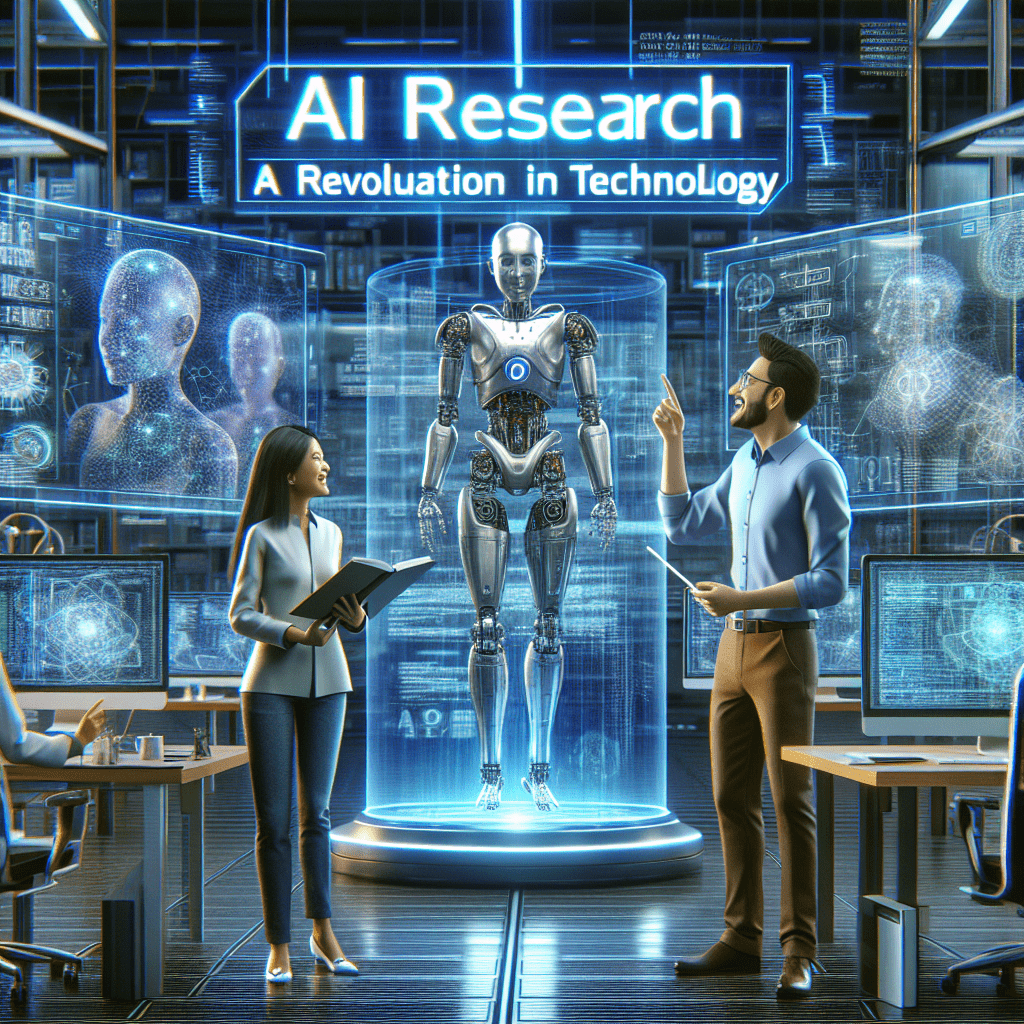Artificial Intelligence (AI) research is leading a revolution in technology that is transforming the way we live, work, and interact with the world around us. AI is a branch of computer science that seeks to create intelligent machines that can mimic human cognitive functions such as learning, problem-solving, and decision-making. Over the past few decades, AI research has made significant strides in advancing the capabilities of machines to perform tasks that were once thought to be exclusive to humans.
One of the key areas of AI research is machine learning, which enables machines to learn from data and improve their performance over time without being explicitly programmed. This has led to the development of algorithms that can analyze massive amounts of data to discover patterns and make predictions, revolutionizing industries such as healthcare, finance, and marketing. For example, AI-powered medical imaging systems can now detect diseases such as cancer with greater accuracy than human radiologists, leading to earlier diagnosis and treatment.
Furthermore, AI research has also made breakthroughs in natural language processing, enabling machines to understand and generate human language. This has led to the development of virtual assistants such as Siri and Alexa, which can interpret and respond to voice commands, as well as language translation tools that can bridge communication barriers between people speaking different languages.
AI research has also made significant advancements in the field of robotics, enabling machines to perform complex tasks in a variety of environments. Autonomous vehicles, for example, use AI algorithms to navigate through traffic and respond to changing road conditions, while robots in factories can perform repetitive tasks with precision and efficiency.
The impact of AI research is not limited to the tech industry, as it has the potential to revolutionize virtually every aspect of society. From improving healthcare outcomes and enhancing cybersecurity to optimizing supply chains and creating new forms of entertainment, the possibilities are endless. However, with these advancements also come ethical and societal challenges, such as concerns about data privacy, job displacement, and the potential for bias in AI algorithms.
In conclusion, AI research represents a revolution in technology that is reshaping the way we live and work. With continued investment in research and development, AI has the potential to drive innovation, solve complex problems, and improve the quality of life for people around the world. As we navigate the opportunities and challenges presented by AI, it is important to ensure that we use this powerful technology responsibly and ethically to create a more inclusive and sustainable future.


